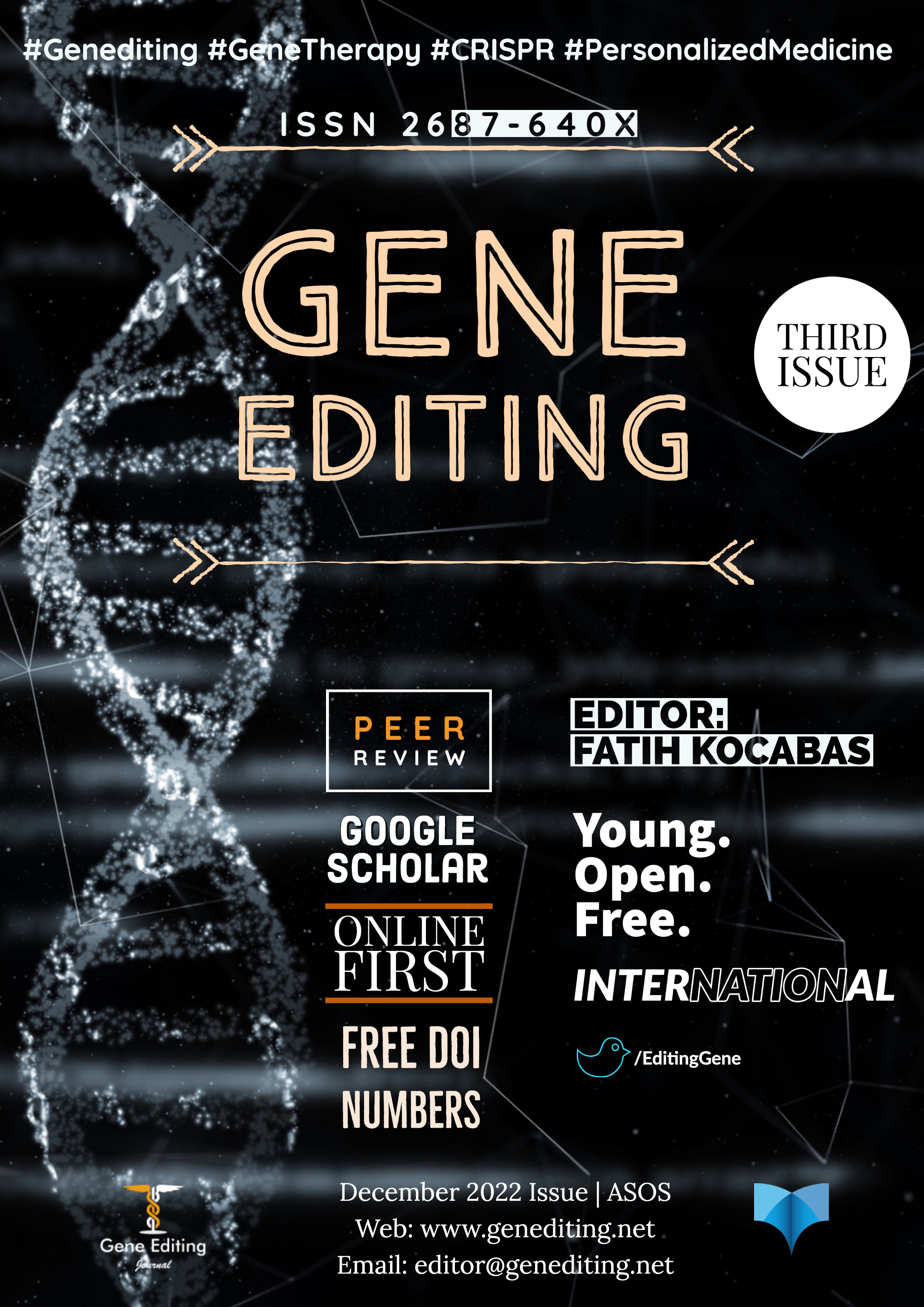Author :
Abstract
Keywords
Abstract
Gene therapy is an effective method for a wide range of genetic diseases, one of which is cystic fibrosis (CF) caused by gene mutations in the cystic fibrosis transmembrane conductance regulator (CFTR) gene. The present study aimed to review the tools and studies focusing on the gene-editing of CF disease. Four main groups of endonuclease are currently used for genome editing, including meganucleases, zinc finger nucleases (ZFN), clustered regularly interspaced short palindromic repeats (CRISPR)/Cas system, and transcription activator-like effector nucleases (TALEN). The use of these genome editing techniques has converted the promise of a therapeutic approach for this disease to an achievable goal. Nevertheless, these techniques have so far only been tested on stem cells and have not yet been used in clinical treatments, due to the multifaceted characteristics of cystic fibrosis. Certainly, further advances in these techniques with increased efficiency of DNA cleavage sites and strong optimization to reduce the defects of their carriers direct the future of genomic editing technology to in vivo treatment of cystic fibrosis
Keywords
- Anders C, Niewoehner O, Duerst A, Jinek M (2014). Structural
- Aouida M, Piatek MJ, Bangarusamy DK, Mahfouz MM (2014).
- Smith J (2011). The I-CreI meganuclease and its engineered
- Alkaf S, Al-Enazi A, Moghrabi N (2019). Geographic distribution
- Bao XR, Pan Y, Lee CM, Davis TH, Bao G (2020). Tools for
- Barnett P (2018). Transcription activator like effector nucleases
- Beikzadeh B, Angaji S (2019). TALEN: A Tool for Genome
- Belete TM (2021). The Current Status of Gene Therapy for the
- Callebaut I, Mense M, Farinha CM (2020) Exploring the basic
- Carroll D (2021). A Short, Idiosyncratic History of Genome
- Check E (2002) A tragic setback. In. Nature Publishing Group
- Chen Z, Wen F, Sun N, Zhao H (2009). Directed evolution of
- Chevalier B, Monnat RJ, Stoddard BL (2005) The LAGLIDADG
- Çolak Y, Nordestgaard BG, Afzal S (2020). Morbidity and
- ML, Hawkins F, Liao W, Mora D, Choi S (2015). Targeted
- Kuperwasser N, Motola DL, Meissner TB, Hendriks WT (2013).
- Doudna JA (2020). The promise and challenge of therapeutic
- Ensminger M, Löbrich M (2020). One end to rule them all: non-
- Castrillo JL, Gaínza E (2020). iPSC-derived intestinal organoids
- Gaj T, Gersbach CA, Barbas III CF (2013). ZFN, TALEN, and
- Gao H, Wu X, Chai J, Han Z (2012). Crystal structure of a TALE
- Gerbrands LC, Haarman EG, Hankel MA, Finken MJ (2017).
- Giacca M, Zacchigna S (2012). Virus-mediated gene delivery for
- Gibson-Corley KN, Engelhardt JF (2021). Animal Models and
- Harrison PT, Sanz DJ, Hollywood JA (2016). Impact of gene
- Fremaux C, Barrangou R (2009). Comparative analysis of
- Xu H (2021). Challenges in adeno-associated virus-based
- N (2021). Cystic Fibrosis-Related Diabetes (CFRD): Overview of
- Kaur G, Upadhyay SK, Verma PC (2021). An Overview of
- Sheikholeslami F-M, Velayati AA (2018). Reappraisal of
- Kormann MSD (2015) In vivo gene correction of cystic fibrosis.
- (2012). Correction of the ΔF508 mutation in the cystic fibrosis
- Malzahn AA, Qi Y (2021) Assembly of TALEN and mTALE-Act
- Marcaida MJ, Munoz IG, Blanco FJ, Prieto J, Montoya G (2010).
- Arita T, Konishi H, Komatsu S, Kubota T, Fujiwara H (2021).
- Megarioti AH, Kouvelis VN (2020). The coevolution of fungal
- Moure CM, Gimble FS, Quiocho FA (2002). Crystal structure of
- Munawar N, Ahmad A (2021) CRISPR/Cas System: An
- Pauwels K, Podevin N, Breyer D, Carroll D, Herman P (2014).
- Drevait M, Vachier I, Claustres M, Chiron R (2021). DNA
- RASOOL N (2021). NEW PLANT BREEDING TECHNIQUES:
- Ray U, Raghavan SC (2020). Modulation of DNA double-strand
- (2020). Specificities and functional coordination between the two
- Joung JK (2013). Engineering Customized TALE Nucleases
- Ferling I, Hillmann F, Hertweck C (2020). Secreted TAL effectors
- Rajagopalan C, Mou H, Wang G (2019). Efficient gene editing at
- Ochiai H, Miyamoto T, Kawai N, Sasakura Y (2013). Efficient
- Lopes-Pacheco M, Harrison PT, Farinha CM (2022).
- Sasaki N, Boymans S, Cuppen E, van der Ent CK (2013).
- Shipman SL, Nivala J, Macklis JD, Church GM (2017). CRISPR–
- Yasinovsky MI, Amelina EL (2020). P. F508del editing in cells
- Yezzi MJ, Lee A, Yang Y, Kim S, Renz P (2016). TALENs
- Swarthout JT, Raisinghani M, Cui X (2011). Zinc Finger
- (2010). Genome editing with engineered zinc finger nucleases.
- SM, Salahudeen AA, Dudek AM, Teran CA, Davis TH (2021).
- R, Montoya G, Duchateau P (2012). 5′-Cytosine-
- (2020) Cystic Fibrosis: Biology and Therapeutics. In: Chronic
- (2021). Mesenchymal Stem Cell exosome delivered Zinc Finger
- Xia E, Zhang Y, Cao H, Li J, Duan R, Hu J (2019). TALEN-
- Wang Y, Zhang X (2021). Adeno‐associated virus (AAV)-based
- M, Sun X, Engelhardt JF (2022). rAAV-MEDIATED EDITING
- Qi H, Wei W (2014). Complete decoding of TAL effectors for
- AK, Ip NY (2021). Efficient manipulation of gene dosage in
- Zhang B (2021). CRISPR/Cas gene therapy. Journal of Cellular
- Zhang S, Shen J, Li D, Cheng Y (2021). Strategies in the delivery





